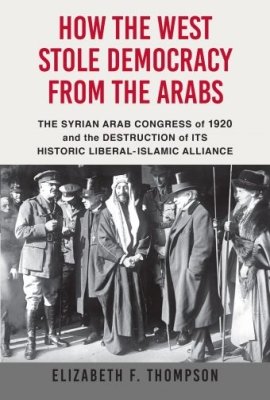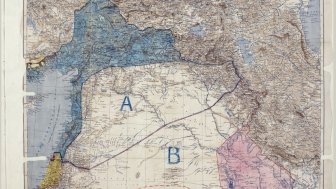Elizabeth F. Thompson
Former Fellow
Professional Affiliation
Professor of History, University of Virginia; Senior J.R. Fellow, U.S. Institute of Peace (2007-08)
Expert Bio
Elizabeth F. Thompson is professor of history at the University of Virginia. She is author of Justice Interrupted: The Struggle for Constitutional Government in the Middle East (Harvard, 2013), which profiles a dozen political movements against tyranny and inequality in the Middle East since 1839, culminating in the Arab uprisings of 2011. Her first book, Colonial Citizens: Republican Rights, Paternal Privilege and Gender in French Syria and Lebanon (Columbia, 2000), won book prizes from the American Historical Association and the Berkshire Conference of Women Historians. Prof. Thompson has also won research awards from the Carnegie Corporation of New York, the Social Science Research Council, the U.S. Institute of Peace, and the Library of Congress. With Mustafa Aksakal, she is Middle East co-editor of the new 1914-1918 Online encyclopedia of the First World War and co-director of the National Endowment for Humanities Summer Seminar for Faculty, "World War I in the Middle East."
Wilson Center Project
"After Lawrence: Woodrow Wilson and the Brief Promise of Arab Liberalism"
Project Summary
Contrary to the conclusion of the movie "Lawrence of Arabia," Arabs established a functional government at Damascus in 1918. Thanks to Pres. Wilson's intervention, Prince Faysal convened the Syrian Arab Congress, where Islamists and Liberals debated and compromised to ratify the most democratic constitution to date in the Arab world. But the prospects for Arab liberalism dimmed when France invaded and occupied Syria in July 1920. This lost episode in history has much relevance after 2011, as Islamists and Liberals have once again struggled to compromise for a democratic transition. Particularly remarkable was the role of Rashid Rida, the foremost Islamist of his day. He insisted on limits to the jurisdiction of Islamic law in public affairs, to ensure political and social equality between Muslims and non-Muslims. Rida’s disappointment at France’s occupation contributed to the rise of the Muslim Brotherhood.
Major Publications
-
Justice Interrupted: The Struggle for Constitutional Government in the Middle East (Harvard, 2013)
-
“Justice Interrupted: Historical Perspectives on Promoting Democracy in the Middle East,” Special Reports Series, 225. United States Institute of Peace: Washington, DC, June 2009
-
Colonial Citizens: Paternal Privilege, Republican Rights, and Gender in French Syria and Lebanon (New York: Columbia University Press, 2000).
-
"The Climax and Crisis of the Colonial Welfare State in Syria and Lebanon during the Second World War," in Steven Heydemann, ed.,
War, Institutions, and Social Change in the Middle East (Berkeley: University of California Press, 2000) 59-99. -
"Public and Private in Middle Eastern Women's History," Journal of Women's History 15:1 (Spring 2003) 52-69.
Previous Terms
Jun 1, 2010 - Aug 1, 2010: "Seeking Justice in the Middle East" Sep 1, 2008 - May 1, 2009: "Struggles for Justice in the Middle East;" This book tells the history of the modern Middle East as never told before: from the perspective of those who have struggled for justice against inva¬sion, tyranny, and inequality. It explains how ideals of justice—and methods of fighting for justice— have changed since the 19th century, especially with the rise of mass movements after World War I. The goal is to place contemporary Islamism in its proper historical context. Islamists do not act from a dis¬tinct or backward political tradition; rather, they have inherited a repertoire of values, symbols, and strategies from other movements: nationalist, com¬munist/socialist and liberal.
Insight & Analysis by Elizabeth F. Thompson
- Book
- Democracy
How the West Stole Democracy from the Arabs: The Syrian Arab Congress of 1920 and the Destruction of its Historic Liberal-Islamic Alliance


- Past event
- Democracy
Justice Interrupted: The Struggle for Constitutional Government in the Middle East


